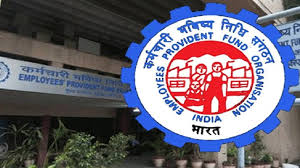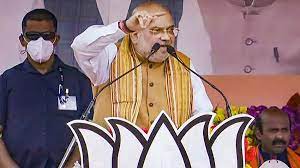Financial independence is not subject to our age or profession. Over time and age, we all learn to manage money wisely, and it becomes easy for us to secure our future and retire at the age we want. After all, we are working hard in our youth to enjoy later on. Though many people focus on building a secure career and earning money, they must remember to save and invest that money.
Read More: How Fixed Deposits Can Boost Your Savings
Arun Singh Tanwar, Founder and CEO of Get Together Finance (GTF-A) stock market institute, said that financial independence never comes with money spared in bank accounts. Instead, it comes when your money multiplies without you working on it. Being in the 21st century, having multiple sources of income is necessary. “You can start different ventures, work extra hours, or even do two jobs. But all this goes in vain if your hard-earned money is not kept in the right place. To retire early, you don’t need an abundance of money. Instead, you need flexibility in working hours combined with an abundance of income,” said Tanwar.
Experts predict India’s economy to grow rapidly in the coming years. Seeing the current growth momentum, inflation can decline, but not incomes and opportunities. To retire early, here’s what you can do:
1. Prioritise financial knowledge: Upskill yourself by gaining knowledge about important financial instruments and investment strategies. “Learn to understand the science behind price fluctuation of price in stock. Invest your money in good stocks to get regular returns,” said Tanwar.
2. Diversify your investment: Never stick to one sector or one stock. Include good-performing stocks in your portfolio from sectors with good potential.
Read More: SIP investment: 5 things you should consider before investing in mutual funds
Think about different investment options including stocks, bonds, index funds, and real estate. Learn about investment strategies, and if necessary, consult with a certified financial planner in order to make well-informed decisions. Ensure you review and re-balance your portfolio frequently to ensure that it still reflects your goals and risk tolerance.
3. Earn fast, spend slow: Wisely spend your hard-earned money. Try to save a fixed amount from earnings every month and invest them in stocks or financial instruments that can give you good returns over time.
Agam Gupta, Executive Director, Share India Fincap, said., “Examine your spending habits now, highlighting where to reduce. Have a monthly budget where you contribute to saving as well as investments. Cut down on unnecessary costs such as eating out or monthly subscriptions. Dedicate these savings for your retirement, and constantly revise and improve your budget. Besides, look for ways to earn more. This could include asking for a raise at work, looking for other jobs or freelancing, or starting your own business. You need to think of different ways to increase income for faster saving.”
4. Pay off debts: It is important to settle any pending debts before concentrating solely on retirement savings. “High-interest debts might impede you overall to attain success financially, like some of the examples of credit card bills or car loans. Build a payback plan and start repaying the highest-interest debts with the smallest installment payments on others. Upon payoffs, channel money to building retirement saving. Also, create a portfolio of different types of investment assets suitable for you and your retirement needs,” said Gupta.
5. Spend to save: Not all expenditure goes in vain. Surely, spend money to fulfil your needs and wants. But, spend money on some assets that will grow in the meantime to secure your future.
Read More: Pradhan Mantri MUDRA Yojana offers loans up to ₹10 lakh. How to apply, eligibility & other details
Point to note: It is important to remember that financial independence and early retirement are based on discipline, consistency, and flexibility. It is important to stay focused on your goals, be flexible and change your strategy when necessary and keep learning.





































